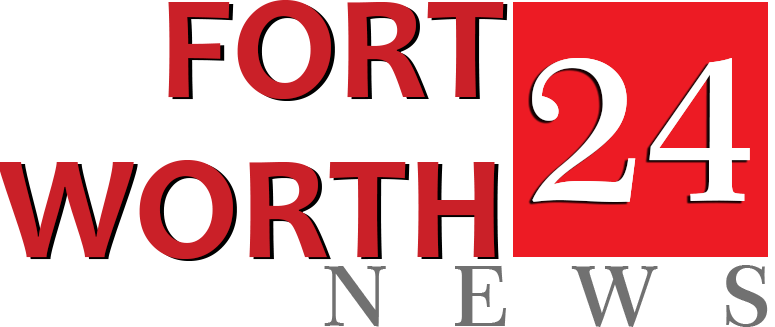As homeowners seek to protect their investments, finding the right home insurance policy can be overwhelming. In 2024, several insurers have emerged as leaders in providing comprehensive coverage options, exceptional customer service, and competitive premium costs. This review evaluates the top five home insurance policies available, specifically looking at their coverage options, customer service ratings, and overall value. We'll also consider specific scenarios relevant to homeowners in cities like Omaha, Sacramento, Rochester, Albuquerque, and Richmond.
State Farm
Coverage Options
State Farm offers a robust range of coverage options, including liability insurance for property owners, natural disaster insurance, and additional coverage for unique features such as homes with pools or solar panels. They also provide specialized policies for vacation homes, high-value homes, and even insurance for historic homes.
Customer Service Ratings
State Farm consistently ranks high in customer satisfaction surveys, boasting a rating of 4.5 out of 5 on platforms like J.D. Power. Their 24/7 customer service and claims processing make it easy for homeowners to get the help they need.
Premium Costs
The average premium for a State Farm policy ranges from $1,200 to $1,800 annually, depending on coverage and location. Their discounts for bundling policies can provide significant savings.
Value Summary
State Farm is an excellent choice for homeowners seeking comprehensive coverage and high customer service ratings, particularly in high-risk areas.
2. Allstate
Coverage Options
Allstate shines with its wide range of optional coverages, including flood insurance coverage and earthquake insurance. They also offer unique policies tailored for renters and condos, making them a versatile choice for different homeowner needs.
Customer Service Ratings
Allstate receives an average customer service rating of 4.2 out of 5. Customers appreciate their user-friendly app, which allows for easy claims submissions and policy management.
Premium Costs
Premiums with Allstate typically range from $1,100 to $1,700 per year. They also have various discounts available, such as for home security systems and loyalty.
Value Summary
Allstate is ideal for homeowners looking for customizable coverage options and a user-friendly experience. Their adaptability makes them suitable for homeowners in cities like Sacramento and Albuquerque.
3. Farmers Insurance
Coverage Options
Farmers Insurance offers extensive property insurance for landlords and coverage for investment properties. They provide unique features like home insurance for military families and policies specifically designed for second homes and seasonal homes.
Customer Service Ratings
Farmers holds a solid 4.0 out of 5 in customer service ratings, with many customers praising their knowledgeable agents and personalized service.
Premium Costs
The average cost of a Farmers policy ranges from $1,200 to $2,000, depending on coverage specifics and geographic location. Their discounts for bundled policies can lead to significant savings.
Value Summary
Farmers Insurance is particularly appealing for those with rental properties or multiple homes. Their specialized coverage options provide great value for homeowners in cities like Richmond and Rochester.
4. USAA
Coverage Options
USAA stands out for its tailored services for military families, offering home insurance for military families and specialized policies for vacation homes. Their coverage includes protection against various natural disasters, including floods and earthquakes.
Customer Service Ratings
USAA boasts an impressive customer service rating of 4.8 out of 5, with customers frequently citing their excellent claims process and dedication to military members.
Premium Costs
USAA offers competitive premiums, averaging between $1,000 and $1,500 annually. Members benefit from additional discounts, making it a cost-effective choice.
Value Summary
For military families, USAA offers unparalleled service and coverage options, making it a top choice for homeowners in any location, especially those stationed in Albuquerque.
5. Liberty Mutual
Coverage Options
Liberty Mutual provides a comprehensive array of coverage options, including insurance for mobile homes, insurance for properties with home businesses, and home warranty vs. homeowners insurance options. Their policies also cover natural disaster insurance, ensuring homeowners are protected against unforeseen events.
Customer Service Ratings
With a customer service rating of 3.8 out of 5, Liberty Mutual is known for its easy-to-navigate online tools but has received mixed reviews regarding claims processing times.
Premium Costs
The average annual premium for Liberty Mutual policies ranges from $1,200 to $1,800. They offer a variety of discounts, including those for good driving records and home security features.
Value Summary
Liberty Mutual is a solid option for homeowners seeking extensive customization options, though they may need to improve their claims process to enhance overall satisfaction.
Comparing the Top Policies
Insurance CompanyAverage PremiumCoverage OptionsCustomer Service Rating| State Farm | $1,200 - $1,800 | High-value homes, vacation homes | 4.5/5 |
| Allstate | $1,100 - $1,700 | Flood, earthquake, renters, condos | 4.2/5 |
| Farmers Insurance | $1,200 - $2,000 | Investment properties, military families | 4.0/5 |
| USAA | $1,000 - $1,500 | Military families, vacation homes | 4.8/5 |
| Liberty Mutual | $1,200 - $1,800 | Mobile homes, natural disasters | 3.8/5 |
Comprehensive Guide to Choosing the Best Home Insurance Policy
Selecting the right home insurance policy is a crucial decision for homeowners, offering protection for one of their most significant investments. With a myriad of options available, it’s essential to know what to look for in a policy and how to make informed choices. This guide will explore how to choose the best home insurance policy, highlighting high CPC keywords related to home insurance to help homeowners navigate the process effectively.
Understanding Home Insurance
Home insurance is designed to protect your home and personal property against various risks, including damage from natural disasters, theft, and liability claims. The right policy can provide peace of mind and financial security. Here’s how to get started:
1. Assess Your Insurance Needs
Before diving into homeowners insurance quotes, assess your specific needs based on your property type, location, and personal circumstances. Consider factors such as:
- The value of your home and possessions.
- Specific risks associated with your location (e.g., flood zones in Richmond or earthquake risks in Albuquerque).
- Whether you need additional coverage for unique features like a pool or solar panels.
2. Types of Home Insurance Policies
There are several types of home insurance policies. Familiarizing yourself with these can help you determine what suits your situation best:
- HO-1: Basic coverage for named perils.
- HO-2: Broader coverage including more perils.
- HO-3: Most common; covers all perils except those specifically excluded.
- HO-4: Renters insurance for personal property.
- HO-5: Comprehensive coverage for high-value homes.
- HO-6: Coverage for condo owners.
- HO-7: Coverage for mobile homes.
3. Key Coverage Areas
When evaluating potential policies, pay attention to key coverage areas:
- Dwelling Coverage: Protects the structure of your home.
- Personal Property Coverage: Covers your belongings inside the home.
- Liability Insurance for Property Owners: Protects against claims from injuries or damages.
- Natural Disaster Insurance: Important in areas prone to disasters; consider flood insurance coverage or earthquake insurance coverage.
Tips for Choosing the Best Home Insurance Policy
1. Compare Home Insurance Quotes
Obtaining homeowners insurance quotes from multiple providers is crucial. Use online tools to gather and compare quotes side-by-side. Pay attention to:
- Premium costs.
- Deductibles.
- Coverage limits.
- Exclusions and endorsements.
2. Read Policy Reviews
Look for home insurance policy reviews to gain insights into customer experiences. Key elements to focus on include:
- Claims process: Is it straightforward, or do customers report difficulties?
- Customer service: Are representatives helpful and responsive?
- Overall satisfaction: What do past customers say about their experiences?
3. Consider Discounts
Many insurance companies offer home insurance discounts for various reasons, such as:
- Bundling home and auto insurance.
- Installing security systems or smoke detectors.
- Being claims-free for several years.
- Being a member of certain organizations or professions.
4. Evaluate Coverage Limits and Exclusions
Ensure that your policy’s coverage limits are adequate for your home’s value and your personal belongings. Common exclusions to watch out for include:
- Certain natural disasters (unless specifically covered).
- Maintenance issues.
- Damage from pests or wear and tear.
5. Check for Additional Coverage Options
Depending on your circumstances, you might need additional coverage options, such as:
- Umbrella insurance for homeowners: Provides extra liability coverage beyond standard policy limits.
- Coverage for home-based businesses or rental properties, especially if you rent out your home in areas like Omaha or Sacramento.
- Insurance for seasonal homes or second homes.
High CPC Keywords to Consider
In your search for the best home insurance policy, be mindful of high CPC keywords that can guide your decisions:
- Best home insurance rates: Helps you find competitively priced options.
- Cheap homeowners insurance: Useful for budget-conscious homeowners.
- Home insurance comparison: Essential for evaluating multiple policies.
- Insurance for vacation homes: Important if you own a second property.
- Home insurance for seniors: Tailored options for older homeowners.
- Insurance for properties in flood zones: Critical for homes in vulnerable areas.
Navigating the Claims Process
Understanding the home insurance claims process is vital. Here’s what to keep in mind:
- Documentation: Keep records of your property and belongings. Photos and receipts can help when filing claims.
- Prompt Reporting: Report any claims to your insurer as soon as possible.
- Follow Up: Stay in contact with your claims adjuster to expedite the process.
Choosing the Right Insurance Company
Selecting the right insurance company is as important as choosing the policy itself. Consider the following:
- Best property insurance companies: Research customer reviews and industry ratings.
- Financial stability: Ensure the company has a solid financial rating.
- Customer service: Evaluate their responsiveness and support during claims.
Final Considerations
1. Review Your Policy Regularly
As your life circumstances change—whether it’s renovations, changes in ownership, or new assets—review your policy regularly to ensure it remains adequate. This is particularly important for home insurance for newlyweds, home insurance for retirees, or insurance for properties with unique features.
2. Consult an Insurance Agent
If you feel overwhelmed, consider consulting a local insurance agent who understands the specific needs of homeowners in your area, such as those in Rochester or Richmond. They can provide personalized guidance based on your unique situation.
3. Be Informed
Educate yourself about common insurance terms and concepts, like the difference between a home warranty and homeowners insurance, to make more informed decisions.
Comprehensive Guide to Home Insurance Policies: Pros and Cons Based on Recent Customer Reviews
When navigating the world of home insurance, it’s essential to understand the various policies available, especially if you’re a first-time buyer or a landlord in cities like Omaha, Sacramento, Rochester, Albuquerque, and Richmond. This article analyzes popular home insurance options based on recent customer reviews, focusing on key aspects such as the claims process, coverage limits, and pricing.
Understanding Home Insurance Policies
Home insurance serves as a crucial safeguard for homeowners, offering protection against damage and liability claims. Policies vary widely in terms of coverage and pricing, which can make choosing the right one overwhelming. Below, we delve into various types of homeowners insurance quotes and highlight their pros and cons.
1. Standard Homeowners Insurance
Pros:
- Comprehensive Coverage: Standard policies often cover dwelling, personal property, liability, and additional living expenses.
- Natural Disaster Coverage: Many policies include basic protection against common perils, though specific disasters like floods may require additional coverage.
Cons:
- Exclusions: Certain events, like earthquakes and floods, are typically excluded and require separate policies.
- Claims Process: Some customers report lengthy claims processes, leading to frustration during stressful times.
2. Renters Insurance Policies
Pros:
- Affordability: Generally cheaper than homeowners insurance, making it accessible for renters.
- Personal Property Coverage: Protects personal belongings from theft or damage, even when not at home.
Cons:
- Limited Liability Coverage: May not provide sufficient liability protection compared to homeowners policies.
- Landlord Responsibility: Renters must rely on their landlord for building insurance, which may not cover personal property.
3. Condo Insurance Quotes
Pros:
- Tailored Coverage: Designed specifically for condo owners, covering personal property and alterations.
- Master Policy Protection: Often includes liability for common areas covered by the condo association’s master policy.
Cons:
- Limited Coverage: Does not cover the building structure itself, which falls under the condo association’s insurance.
- Higher Premiums: Depending on the area, condo insurance can be pricier than standard homeowners insurance.
4. High-Value Home Insurance
Pros:
- Increased Coverage Limits: Offers higher limits on valuable possessions, which is essential for homeowners with expensive items.
- Customized Policies: Often includes specialized coverage options tailored to unique properties.
Cons:
- Cost: Premiums can be significantly higher than standard policies, impacting overall affordability.
- Complexity: Requires careful evaluation of coverage needs, which may be challenging for some buyers.
5. Flood Insurance Coverage
Pros:
- Protection from Flood Damage: Essential for homes in flood-prone areas, covering damages that standard policies do not.
- Government Backing: Often backed by federal programs, making it more reliable.
Cons:
- Premium Costs: Can be expensive, especially in high-risk zones like parts of Sacramento and Richmond.
- Waiting Period: Typically has a 30-day waiting period before coverage kicks in.
6. Insurance for Vacation Homes
Pros:
- Seasonal Protection: Covers specific risks associated with homes not occupied year-round.
- Rental Income Coverage: Many policies offer protection for rental income lost due to covered perils.
Cons:
- Higher Premiums: Due to the higher risk associated with vacant properties, these policies can be costly.
- Limited Coverage: May not cover all perils, requiring additional policies for comprehensive protection.
7. Home Insurance for First-Time Buyers
Pros:
- Special Discounts: Many insurers offer discounts for first-time buyers, making it more affordable.
- Guidance Offered: Insurers often provide resources to help new homeowners understand their policies.
Cons:
- Limited Experience: First-time buyers may overlook critical coverage aspects due to inexperience.
- Potentially Higher Rates: Some may find rates higher due to lack of prior insurance history.
8. Umbrella Insurance for Homeowners
Pros:
- Extra Liability Coverage: Offers additional protection beyond standard homeowners policies, useful for high-net-worth individuals.
- Broad Coverage: Covers various liabilities not typically included in standard policies.
Cons:
- Additional Cost: Adds another layer of expense to insurance costs.
- Complexity: Understanding the nuances of umbrella coverage can be challenging.
9. Home Insurance for High-Risk Areas
Pros:
- Tailored Coverage: Insurers may offer specialized policies designed for risks prevalent in areas prone to natural disasters, such as those in Albuquerque.
- Potential for Discounts: Some insurers provide discounts for home safety features that mitigate risks.
Cons:
- High Premiums: Living in a high-risk area often leads to higher insurance costs.
- Coverage Limitations: Certain risks may still be excluded, requiring additional policies.
10. Home Insurance Claims Process
Pros:
- Protection Against Loss: A well-structured claims process can provide homeowners with essential support during tough times.
- Customer Support: Many insurers offer robust customer service to guide policyholders through claims.
Cons:
- Lengthy Process: Some customers report delays in claims resolution, leading to financial strain.
- Disputes Over Coverage: Disagreements regarding what is covered can complicate the claims experience.
11. Home Insurance Discounts
Pros:
- Cost Savings: Many insurers provide discounts for bundling policies, having a security system, or being claims-free.
- Encourages Safety: Discounts can incentivize homeowners to invest in safety features.
Cons:
- Complex Eligibility Requirements: Not all discounts are easily accessible, making it hard to determine potential savings.
- Limited Awareness: Homeowners may not be aware of all the discounts they qualify for, leading to higher costs.
12. Natural Disaster Insurance
Pros:
- Essential Coverage: Particularly important in disaster-prone areas, providing peace of mind to homeowners.
- Comprehensive Protection: Covers specific risks associated with natural disasters, filling gaps left by standard policies.
Cons:
- High Premiums: Insurance for natural disasters can be significantly more expensive than traditional coverage.
- Exclusions: Some policies may have strict exclusions that can leave homeowners vulnerable.
Comparative Analysis of Popular Insurance Providers
Now that we've explored various types of home insurance, it’s helpful to look at specific insurance providers based on customer reviews from cities like Rochester and Omaha. Below are some of the top-rated companies for various insurance types:
1. State Farm
- Claims Process: Generally praised for a smooth claims experience, with many customers reporting timely responses.
- Coverage Options: Offers a wide range of coverage options, including policies for vacation homes and high-value properties.
- Pricing: Competitive rates with potential discounts for bundling.
2. Allstate
- Customer Support: Known for strong customer service and support during the claims process.
- Coverage Limits: Offers flexible coverage limits that can be customized to fit individual needs.
- Pricing: Slightly higher premiums but offset by extensive coverage options and discounts.
3. Geico
- Affordable Rates: Known for some of the most competitive prices in the market, particularly for cheap homeowners insurance.
- Claims Process: Some reviews indicate a less satisfactory claims process compared to competitors.
- Limited Coverage Options: While they offer basic coverage, additional options may be limited.
4. Progressive
- Customization: Offers customizable policies, making it suitable for unique properties, including historic homes.
- Claims Process: Generally favorable reviews for claims handling, but experiences can vary widely.
- Discounts: Offers significant discounts for bundling, making it attractive for multi-policy holders.
5. Farmers Insurance
- Strong Coverage: Comprehensive policies, including options for natural disaster insurance and property insurance for landlords.
- Customer Service: Mixed reviews on customer service; some customers report excellent support while others encounter challenges.
- Pricing: Competitive pricing with various discounts available, especially for new homeowners.
Common Pitfalls to Avoid When Selecting a Home Insurance Policy
Selecting a home insurance policy is a crucial step for any homeowner, yet many individuals make mistakes that could lead to inadequate coverage or unexpected costs. Whether you’re in Omaha, Sacramento, Rochester, Albuquerque, or Richmond, understanding the common pitfalls can save you time, money, and stress. This article outlines key factors to consider when choosing a policy, leveraging insights from policy reviews to help you avoid costly mistakes.
1. Underestimating Coverage Needs
One of the most frequent pitfalls is underestimating the amount of coverage required. Many homeowners simply select the minimum required by their mortgage lender, which may not adequately cover the full cost of rebuilding or replacing their home. For instance, if your home is damaged by a natural disaster, such as flooding—which often requires separate flood insurance coverage—you’ll want to ensure your policy covers the current market value, not just the amount owed on your mortgage.
Key Insight:
Review your home’s value and consider additional coverage for belongings, personal liability, and specific risks like earthquakes or floods, especially if you reside in high-risk areas like Albuquerque or Richmond.
2. Failing to Compare Policies
Many homeowners skip the essential step of comparing home insurance quotes. This oversight can lead to overpaying for coverage that may not even meet your needs. By using tools to perform a home insurance comparison, you can identify the best home insurance rates tailored to your situation.
Key Insight:
Use online platforms to gather multiple homeowners insurance quotes and analyze the coverage, deductibles, and exclusions offered by various insurers. Look for reviews on the best property insurance companies to ensure reliability.
3. Ignoring Policy Exclusions
Every policy comes with exclusions—specific scenarios or items that are not covered. Homeowners often overlook these exclusions, which can lead to rude awakenings when filing a claim. For instance, standard policies might not cover damages from floods or earthquakes unless you purchase additional insurance.
Key Insight:
Thoroughly read the policy documents and ask your agent about any exclusions. If you live in areas prone to natural disasters, ensure you have the necessary natural disaster insurance.
4. Not Considering the Cost of Living
The cost of living in different areas can significantly affect your insurance premiums. For example, homeowners in Sacramento may face higher rates due to the risk of wildfires compared to those in Rochester. Understanding how local factors influence your rates can help you make informed decisions.
Key Insight:
Research local insurance trends and discuss them with your agent to tailor your coverage to your community's specific risks.
5. Overlooking Discounts
Many homeowners are unaware of potential discounts that could significantly reduce their premiums. Insurers often provide discounts for various reasons, including bundling policies, having security systems, or being a claims-free customer.
Key Insight:
Inquire about home insurance discounts that may apply to you. For example, if you are a first-time buyer, some companies offer special incentives.
6. Skipping Liability Coverage
Liability insurance protects you if someone is injured on your property. Many homeowners mistakenly believe their homeowners insurance includes sufficient liability coverage. However, if someone files a lawsuit, the costs can escalate quickly.
Key Insight:
Consider increasing your liability limits and think about umbrella insurance for homeowners for added protection against larger claims.
7. Not Updating Your Policy
As life changes—such as renovations, purchases of high-value items, or changes in your family structure—your insurance needs may evolve. Failing to update your policy can leave you underinsured in critical situations.
Key Insight:
Schedule regular reviews of your policy with your insurer, particularly after major life changes, to ensure you have the best coverage for home insurance.
8. Neglecting to Review the Claims Process
Understanding the home insurance claims process is crucial before you need to file a claim. Many homeowners are unaware of how their insurer handles claims until it's too late.
Key Insight:
Ask about the insurer’s claims process and read customer reviews to gauge how efficiently claims are handled. This can make a significant difference in times of need.
9. Confusing Home Warranty with Home Insurance
Many homeowners mistakenly believe that a home warranty and homeowners insurance serve the same purpose. A home warranty typically covers repairs and replacements for home systems and appliances, while homeowners insurance covers damage to the structure and liability.
Key Insight:
Clearly distinguish between the two and consider whether you need both based on your situation.
10. Not Considering Special Coverage Needs
Homeowners with unique situations, such as those with high-value homes, vacation properties, or historic homes, often overlook the need for specialized coverage. Standard policies may not provide adequate protection for unique risks associated with these properties.
Key Insight:
If your home falls into one of these categories, seek tailored coverage options, such as high-value home insurance or insurance specifically designed for historic homes.
11. Ignoring Property Management Needs
For landlords and property owners, the insurance needs differ significantly from those of primary homeowners. Many overlook the importance of property insurance for landlords and fail to secure coverage that protects their rental investments adequately.
Key Insight:
Consider insurance for rental properties that covers loss of rent and liability, ensuring that you are protected as a property owner.
12. Misunderstanding Coverage Limits and Deductibles
Finally, many homeowners fail to understand the implications of coverage limits and deductibles. A low premium might come with high deductibles or insufficient coverage limits, which could lead to significant out-of-pocket expenses in the event of a claim.
Key Insight:
Evaluate your comfort level with deductibles and ensure that your coverage limits align with the potential costs of rebuilding your home and replacing your belongings.
1. What is Home Insurance and What Does It Cover?
Home insurance, also known as property insurance, protects your home and belongings from various risks, including theft, fire, and natural disasters. Most standard policies cover:
- Dwelling Protection: Covers the structure of your home.
- Personal Property: Covers personal belongings like furniture and electronics.
- Liability Protection: Protects you against lawsuits for injuries or damages to others.
- Additional Living Expenses: Covers living costs if you’re temporarily displaced.
Regional Considerations
In areas prone to specific risks, such as flood insurance coverage in Sacramento or natural disaster insurance in Albuquerque, it’s essential to tailor your coverage accordingly.
2. What Are Common Exclusions in Home Insurance Policies?
Understanding coverage exclusions is vital. Common exclusions include:
- Flood Damage: Typically requires separate flood insurance.
- Earthquake Damage: Often not covered unless specifically added.
- Wear and Tear: General maintenance issues aren't covered.
- Sewer Backup: Usually requires additional coverage.
It's crucial to read the fine print of your policy and consider purchasing additional policies like earthquake insurance if you live in areas prone to seismic activity, such as Richmond.
3. How Are Premiums Determined and Why Do They Increase?
Home insurance premiums are influenced by several factors:
- Location: Areas prone to crime or natural disasters typically see higher rates.
- Home Value: More expensive homes often incur higher premiums.
- Claims History: Frequent claims can lead to increased premiums.
- Credit Score: In many states, a higher credit score can reduce premiums.
Premium Increases
Premiums can increase due to changes in these factors or broader industry trends, such as rising repair costs. It’s essential to regularly review your policy to understand your coverage and adjust as necessary.
4. How Do I File a Home Insurance Claim?
Filing a claim can be daunting, but following these steps can streamline the process:
- Document the Damage: Take photos and make an inventory of damaged items.
- Contact Your Insurer: Report the claim as soon as possible.
- Complete Necessary Forms: Fill out any required forms provided by your insurance company.
- Follow Up: Stay in touch with your claims adjuster for updates and to answer any questions.
Tips for a Successful Claim
- Be Prepared: Keep records of your home inventory and policy details handy.
- Stay Organized: Maintain a file with all correspondence related to your claim.
5. What Types of Home Insurance Policies Are Available?
There are various types of home insurance policies to consider:
- HO-1: Basic coverage for a limited set of perils.
- HO-2: Broad coverage for more named perils.
- HO-3: The most common policy, covering your home and personal belongings against all perils unless excluded.
- HO-4: Renters insurance that covers personal property.
- HO-6: Condo insurance tailored for condominium owners.
For first-time buyers in cities like Rochester, understanding these options can help you select the best policy for your needs.
6. How Can I Get the Best Home Insurance Rates?
Finding the best home insurance rates involves:
- Shopping Around: Get quotes from multiple insurers to compare coverage and prices.
- Bundling Policies: Consider bundling your home and auto insurance for discounts.
- Increasing Deductibles: A higher deductible can lower your premium.
- Maintaining Good Credit: Keeping a good credit score can help reduce your rates.
Utilizing Online Resources
Websites that offer home insurance comparison can provide insights into various policies and rates in your area, allowing you to make an informed decision.
7. Are There Discounts Available on Home Insurance?
Yes! Many insurers offer home insurance discounts for various reasons:
- Claim-Free Discounts: For maintaining a claim-free history.
- Home Security Systems: Discounts for homes equipped with security systems.
- Loyalty Discounts: Discounts for long-term customers.
- Association Discounts: Some professional organizations offer discounts through partnered insurers.
Always ask your insurance agent about available discounts, as they can significantly reduce your overall premium.
8. What Are the Differences Between Home Warranty and Homeowners Insurance?
A home warranty covers the repair or replacement of home systems and appliances, while homeowners insurance protects against damages to the home itself and personal property. Understanding these differences can help you determine what coverage is best for your situation.
When to Consider Each
- Home Warranty: Ideal for older homes or those with aging systems.
- Homeowners Insurance: Essential for protecting your investment and liability.
9. What Coverage Should I Consider for Rental Properties?
Insurance for rental properties can differ significantly from standard homeowners insurance. Key considerations include:
- Landlord Insurance: Covers the building and liability.
- Property Damage Coverage: Protects against damages caused by tenants.
- Loss of Rental Income: Covers lost income if the property becomes uninhabitable.
Investing in property insurance for landlords is crucial for protecting your investment in cities like Omaha and Sacramento.
10. How Can I Insure High-Value Homes?
For high-value home insurance, it’s important to seek a policy that adequately reflects your home’s worth. Considerations include:
- Replacement Cost Coverage: Ensures you can rebuild your home with similar materials and quality.
- Valuable Items Coverage: Provides additional protection for high-value belongings, such as jewelry and art.
11. What About Insurance for Vacation Homes?
Insurance for vacation homes often requires specialized policies due to the increased risk associated with non-occupancy. Look for:
- Seasonal Coverage Options: To protect your home when it’s unoccupied.
- Liability Protection: To safeguard against potential injuries on your property.
12. What Should Homeowners in High-Risk Areas Consider?
Those living in high-risk areas should focus on tailored coverage options:
- Natural Disaster Insurance: Essential in areas prone to hurricanes, earthquakes, or wildfires.
- Flood Insurance: Especially important in regions with a high flood risk.
13. How Can Seniors Find Suitable Home Insurance?
Home insurance for seniors may involve considerations for age-related needs:
- Discounts for Seniors: Many insurers offer discounts for mature homeowners.
- Simplified Policies: Look for policies that are easy to understand and manage.
14. What Are the Unique Considerations for Mobile Homes?
Insurance for mobile homes can be different than for traditional homes. Key points include:
- Manufactured Home Insurance: Specifically designed to cover mobile and manufactured homes.
- Coverage for Transportation: Policies may also cover damages during transport.
15. How Do I Handle Home Insurance Claims Effectively?
Handling claims efficiently involves preparation and proactive communication. Key steps include:
- Document Everything: Keep detailed records of communications and damage.
- Respond Promptly: Address any requests from your insurer quickly to avoid delays.
Frequently Asked Questions About Home Insurance Policies
Navigating the world of home insurance can be overwhelming, especially with various terms and coverage options. This article addresses frequently asked questions about home insurance policies, incorporating insights from policy reviews and industry practices. We’ll tackle common concerns about coverage exclusions, premium increases, and the claims process while highlighting options tailored to specific needs, such as homeowners insurance quotes, best home insurance rates, and more.

.jpg)







 English (US) ·
English (US) ·